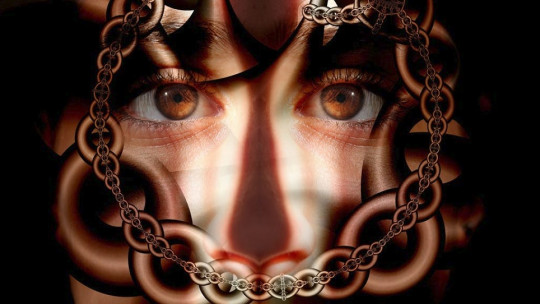
Jerusalem is a city in the Middle East that is located between the northern shores of the Dead Sea and the Mediterranean Sea. This city is known for being considered a sacred city by the three great monotheistic religions: Christianity, Judaism and Islam.
Jerusalem syndrome has been considered a psychological disorder that can affect some tourists who visit the city of Jerusalem and also some of its inhabitants, being an alteration with symptoms very similar to that of psychosis. Furthermore, delusions and hallucinations could appear in this syndrome.
In this article We will take a closer look at what Jerusalem syndrome consists of and also what are the different types that there can be.
What is Jerusalem syndrome?
Jerusalem syndrome has been considered by some specialists as a psychological disorder that may affect some of the tourists who visit the city of Jerusalem. This syndrome also affects some of the inhabitants of this city.
It should be noted that Jerusalem syndrome is a psychological alteration with symptoms very similar to that of psychosis. Furthermore, delusions and hallucinations could appear in this syndrome.
It is common for people who suffer from this syndrome to identify with biblical characters and behave in imitation of them, the most common characters with whom they usually identify being the following: Jesus of Nazareth, Moses, Mary Magdalene, King David of the Old Testament or John the Baptist, among others. Furthermore, it is common for men to emulate male characters and women to emulate female characters.

On the other hand also religious confession is important, since Christians usually imitate characters from the New Testament, while Jews usually imitate characters from the Old Testament. This identification is usually accompanied by prayers with the sick and public preaching, and people affected by Jerusalem syndrome usually dress in robes or sheets.
What could be the causes of Jerusalem syndrome?
It was the doctor Yair Bar-El, former director of the Kfar Shaul psychiatric hospital, located near Jerusalem, who first identified Jerusalem syndrome. This psychiatrist examined approximately 500 tourists who had been declared temporarily insane and who were treated and admitted to the hospital where he worked between 1979 and 1993. Of all of them, 66% were Jews, 33% were Christians and the 1% did not have a defined religious affiliation.
At the Eim Karem hospital (“The Hadassah University Hospital-Ein Kerem”) in Jerusalem there is a psychiatry department that is specialized in the treatment of this syndrome, which is a breakdown of common sense due to an overload on a spiritual level when being in a site full of history, mythology, ideology and religion concentrated in the city of Jerusalem, as well as its consequences (crusades, massacres, exoduses, wars, miracles, martyrdoms, art, culture, etc.).
According to specialists in the field, Jerusalem syndrome could be similar to “Florence syndrome” or “Stendhal syndrome” which was detected by Italian psychiatrists when they were able to observe in some patients who had gone to Florence for tourism reasons and who behaved in a strange and irrational way (thought disorders and even panic attacks could appear). In this case, it could be the artwork, history and beauty of the city that causes the syndrome.
Most common symptoms of Jerusalem syndrome
Dr. Yair Bar-El and his collaborators developed criteria that could be used by mental health professionals to identify possible cases of Jerusalem syndrome.
These patients could have suffered an acute psychotic episode and developed Jerusalem syndrome. The most common thing is that they go through 7 stages:
After being hospitalized in the psychiatric unit and having received treatment, these patients usually regain consciousness and remember in detail what has happened to them, I feel it is quite common for them to feel ashamed about it and avoid talking about it.
The different types of Jerusalem syndrome
Jerusalem syndrome, as we have seen, is commonly associated with that psychological disorder that has affected several tourists who have visited the city of Jerusalem, as well as some of its inhabitants. However, it should be noted that there are several types of this syndrome, so we are going to explain them below.
1. First type
The first type would be the most common, since it is the one that usually develops in more than 80% of cases. Here we would be talking about a Jerusalem syndrome formed in people who, prior to their visit to this city, had received a diagnosis of a psychotic disorder. What’s more, in type 1 of Jerusalem syndrome, we could find delusional ideas that would have motivated these people to travel to a land so deeply rooted in religion as Jerusalem is in order to complete “his mission.”
Furthermore, within this first group, we could make a subdivision between 4 subtypes:
- Subtype 1: when they identify with a biblical character or have the conviction that they are that character.
- Subtype 2: when they identify with a religious or even political idea.
- Subtype 3: when they attribute healing properties to the city of Jerusalem.
- Subtype 4: when they show their own mental problems as if they were family problems.
2. Second type
The second type of Jerusalem syndrome would be composed of those patients who They show idiosyncratic ideas and also show other psychological problems such as some psychotic decompensation in your personality (e.g., suffering from a personality disorder that causes emotional instability, a histrionic disorder, or even an obsessive-compulsive personality disorder). However, in this type of case the strange ideas and thoughts do not reach psychotic or delusional dimensions, rather obsessive ideas usually appear (e.g., a tourist who is obsessed with finding the “true” religion.
3. Third type
Finally, those patients who had never before received a diagnosis of a psychotic disorder or some other psychiatric disorder that could have some relationship with the symptoms of Jerusalem syndrome. In these cases, they are usually diagnosed after having suffered an acute psychotic break when they arrive in the city, and The most common thing is that in this type of case neither auditory nor visual hallucinations appear.
Therefore, it could be said that this would be the most “pure” way to develop Jerusalem syndrome, as there is no psychiatric history. In addition, these episodes can be characterized by the following: symptoms of anxiety, nervousness or tension, wandering alone around the city or sacred places, having strong desires for purification or cleansing, a strong need to pray or attempts to preach in a sacred place.
- Related article: “The 8 types of Psychiatry (and what mental illnesses they treat)”
Treatment for Jerusalem syndrome
Jerusalem syndrome in cases of type 3, which is the least severe as there is no previous psychiatric history, usually recover within approximately 1 week, so we could be talking about a brief episode that is followed by a complete recovery .
Besides, recovery usually occurs spontaneously so the treatment could be aimed at caring for the patient during those days, ensuring that they feel well, that the symptoms subside, and providing psychological support.
If the patient has people who could be in his or her care, such as family members, and having managed to stabilize or keep the symptoms under control, hospital admission may not be necessary and in that case outpatient treatment would be opted for until treatment can be given. the discharge
Later, once he has returned to normal, the patient could consider visiting a local professional who could monitor his mental health status in the following months.
In the most serious cases, such as type 1, which have a psychiatric history, longer hospital stay may be necessary and the most appropriate treatment would be similar to that received by people with any psychotic disorder, and it is quite common to opt for an interdisciplinary treatment that provides the patient with psychological support along with the prescription of psychotropic drugs that allow controlling delusional ideas and possible hallucinations, it being very important that a psychiatrist evaluates this and makes the relevant decision.
In the case of the group of patients belonging to type 2, there is the option of opting for a treatment that is focused on the comorbid symptoms in order to achieve stability and in this way could resolve the symptoms associated with Jerusalem syndrome. a matter of days as occurs in the case of type 1 patients. However, treatment varies so it would be important for a thorough evaluation to be carried out by professionals.








